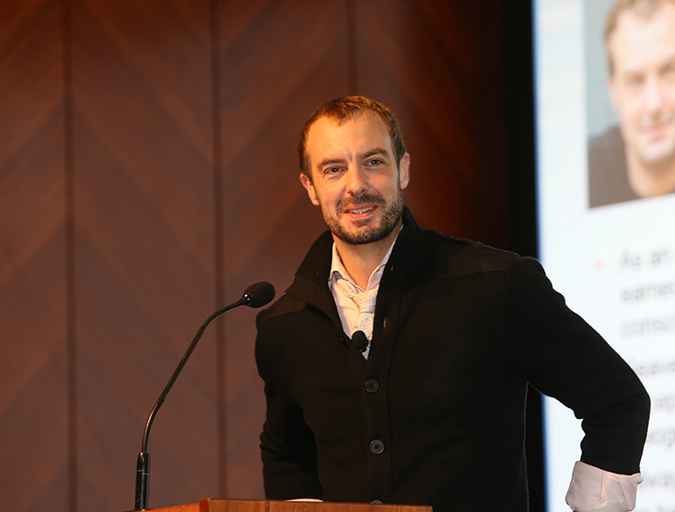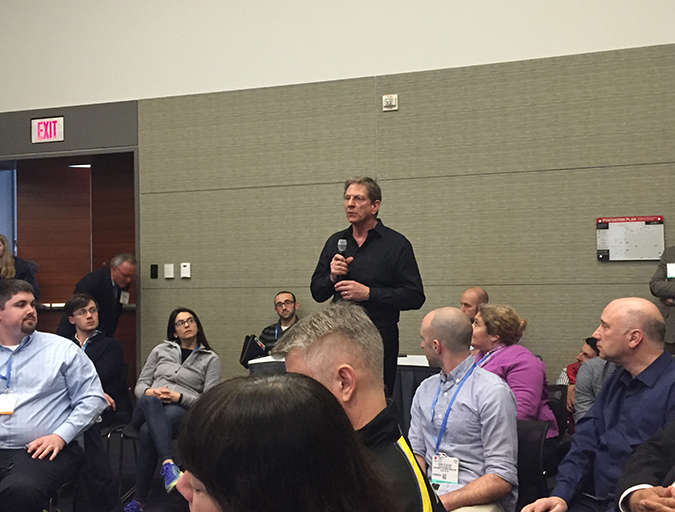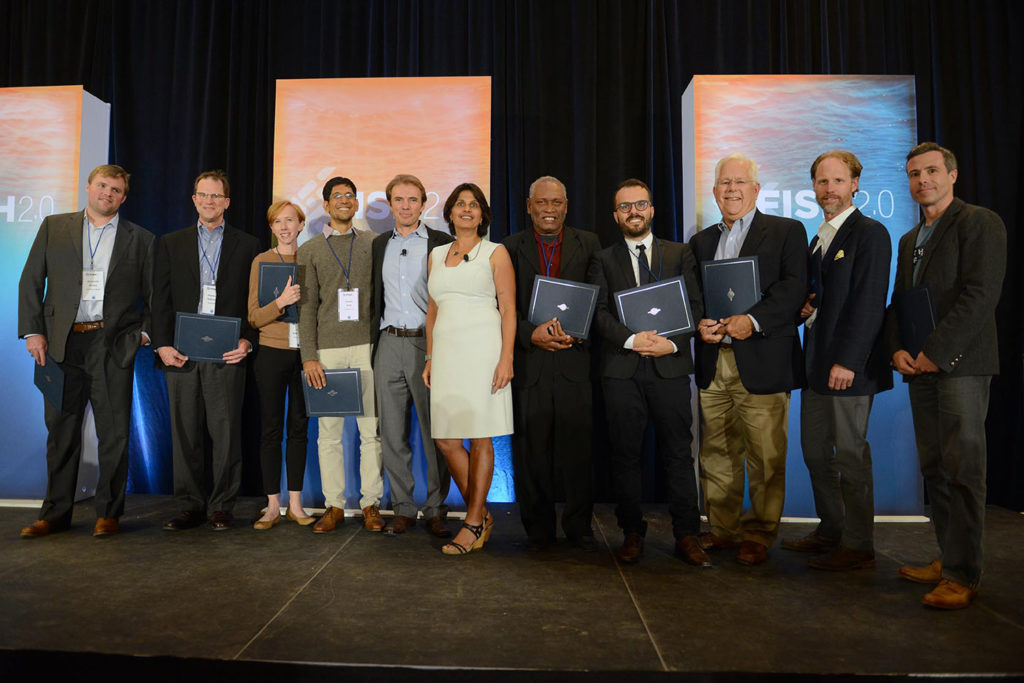SENA speakers dig into corporate social responsibility and what lies beyond the profit motive

Few agree on a definition for corporate social responsibility (CSR). But to Kent Greenfield, there’s one simple meaning: To make money.
That’s what Greenfield, a law professor and dean’s research scholar at Boston College Law School, told Seafood Expo North America (SENA) attendees earlier this month during his keynote address. He said a company does not exhibit social responsibility by marketing philanthropy. Nor is it about posting the CEO’s pet project on social media.
“The purpose of corporations and businesses is to build wealth. That’s why businesses exist. They’re not charities. They’re not universities. They’re not families. A business’ purpose is to be the engine of wealth creation. A corporation is the most successful engine the world has ever seen — its genius is in creating wealth,” Greenfield said at SENA, the continent’s largest seafood industry trade show, held in Boston.
“I’m not talking about wealth to shareholders, wealth in the short term, or being able to pay your CEO a bazillion dollars,” he added. “It’s about taking advantage of what we have in the corporate form to sustain a business over the long term. That’s your social responsibility. Your obligation as a business is to live long and prosper.”
Before diving into the often misunderstood and misused world of corporate social responsibility, Greenfield said businesses should be engaged in sustainable stakeholder governance, and find ways to involve contributions from internal and external shareholders. Companies can “live forever,” he said, which compels them to make a multigenerational investment. Therefore, the “center of the CSR target” is resources, employees and customers, Greenfield said.

How a purposeful or responsible code or culture is communicated outward and meshed with the brand — placing a value on your values — is another matter. Seafood companies ready to embrace positive change have the opportunity to differentiate themselves in the marketplace and reap the rewards, said Øistein Thorsen, principal consultant at FAI (Farm Animal Initiative), a division of New York-based Benchmark Holdings. FAI is a research and advisory firm with a mission to help the food and farming sector overcome key challenges and implement better practices — both on land and at sea. What’s good for farmers, fishermen, animals and the environment, he said, is ultimately good for business.
“The talk on purpose in business is everywhere at the moment. Hybrid cars, recycled fashion, humanely raised meat. Consumers’ buying patterns are influenced on claims that go well beyond quality and price,” said Thorsen during the conference session he moderated at SENA titled “The Purposeful Brand: Values, Profits and Lessons from the Street.”
“Society is rewarding companies committed to a bigger purpose, beyond but also including shareholder returns,” he said.
Thorsen asked his panelists if establishing a greater purpose is the key to the renewal of American seafood brands, which face collective challenges: ocean pollution, forced labor, environmental impacts, consumer skepticism and lack of knowledge, to name a few.
“It’s all resulting in consumers eating the same low amount of seafood today that they did 30 years ago,” he said. “People everywhere want to connect with the food they eat. They want to know where it comes from, who made it, how and why.”
It’s about taking advantage of what we have in the corporate form to sustain a business over the long term. That’s your social responsibility. Your obligation as a business is to live long and prosper.
Aaron Niederhelman said a business model based on trust and fueled by good people is what translates to the consumer. Niederhelman, co-founder of the Entrepreneur Agrarian Fund, has no direct ties to the seafood industry as his private equity fund connects the marketplace with its network of livestock-based farms in the Northeast United States, while improving land and soil quality. But he knows the food industry, which he said is one of the worst at greenwashing and failing to deliver on promises.
“I see an opportunity in connecting with this new generation of consumer who has great interest in higher-quality food, whether that’s seafood or terrestrial animals or row crops,” Niederhelman said. “People are looking for intrinsic value associated to food — food as preventative health care is a context that we follow. There’s an element of sustainability associated to that.”
It can take years for a company to establish a purposeful brand, whether the thrust is environmental stewardship or human nutrition — or, for many seafood enterprises, both. The industry as a whole, however, can make greater strides on all fronts, said Greenfield, if stakeholders “lash themselves to the mast” and act collectively.
“It’s an existential challenge for this industry,” he said. “Nobody wants to be the first to incur short-term costs that might accumulate and force their company to fail and lead the market to the bad actors. Act too far ahead of your competitors in the space, and it’s a worry. How do you do it? You’ve got to do it together. Bind yourself with others and work collectively, competitors, NGOs and governments.”
Author
-

James Wright
Editorial Manager
Global Aquaculture Alliance
Portsmouth, NH, USA[103,114,111,46,101,99,110,97,105,108,108,97,97,103,64,116,104,103,105,114,119,46,115,101,109,97,106]
Tagged With
Related Posts

Innovation & Investment
GOAL 2015 Day 2: The story we choose to tell
If Day 1 of GOAL 2015 was all about defense, the following day of the aquaculture industry’s leading global conference was about offense — exuding confidence that farming fish is the way to feed future generations, and determining how to tell the world its story.

Intelligence
Boston brainstorm: Getting consumers to embrace aquaculture
In a discussion format somewhat unique to the bustling halls of Seafood Expo North America, aquaculture backers lamented the lackluster U.S. consumer acceptance for farmed fish.

Intelligence
Cup size matters, but for oysters, branding matters more
To name an oyster is to give birth to a brand, essential to stand out in today’s raw bar scene. The briny bite-sized morsels are arguably seafood’s sexiest offerings, but a memorable moniker (and a quality product) is what keeps them on the menu.

Innovation & Investment
Aquaculture innovators come out of their shells at Fish 2.0
Biannual conference/competition showcased 40 new seafood businesses, or related services, from around the world. Winners were chosen on the strength of the opportunity, meaningful impact and compelling leadership and presentation.

